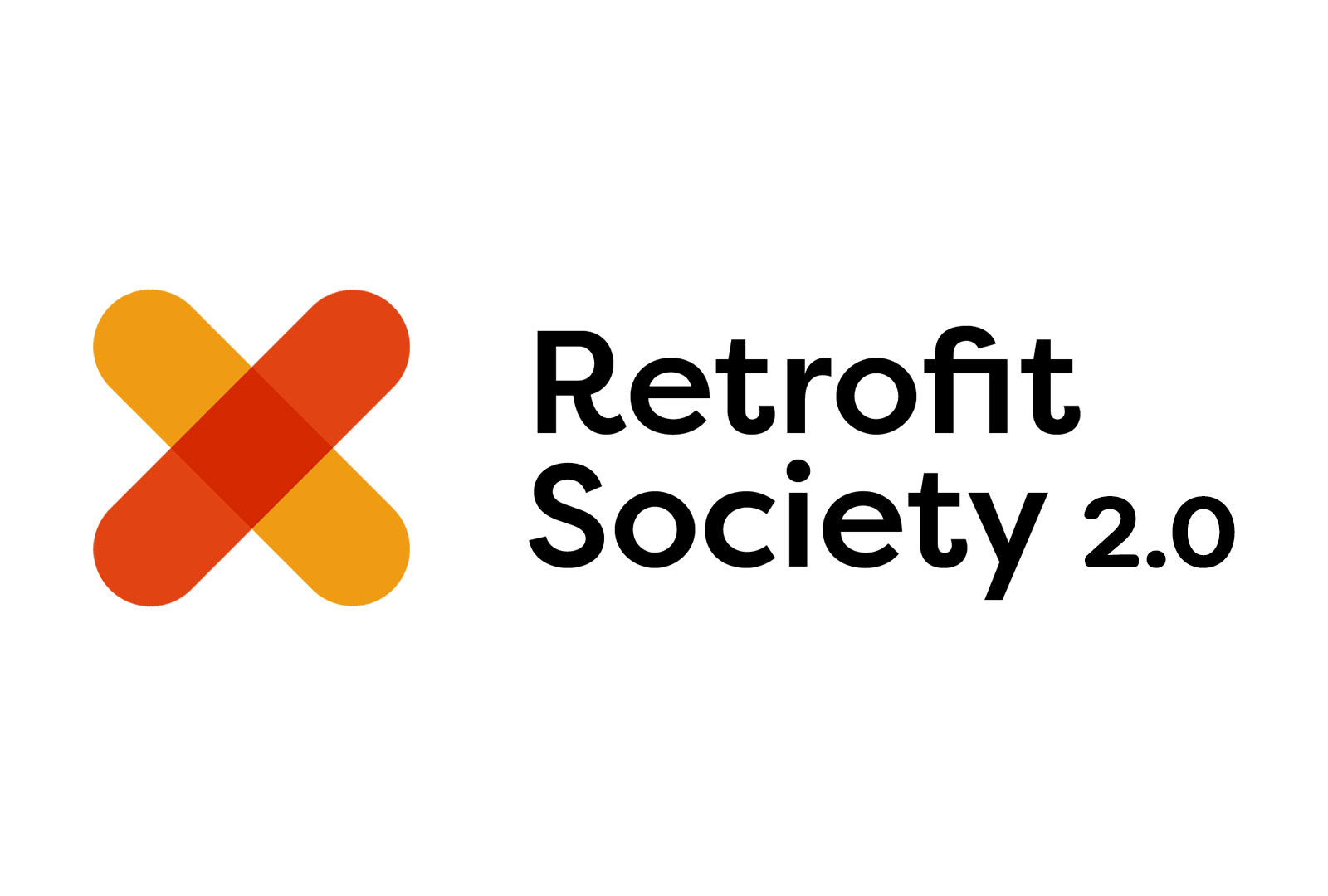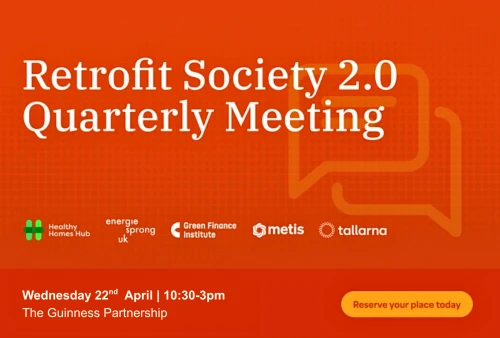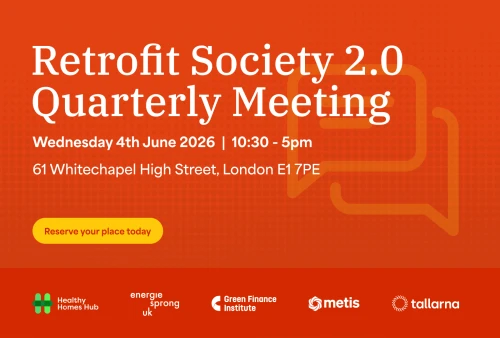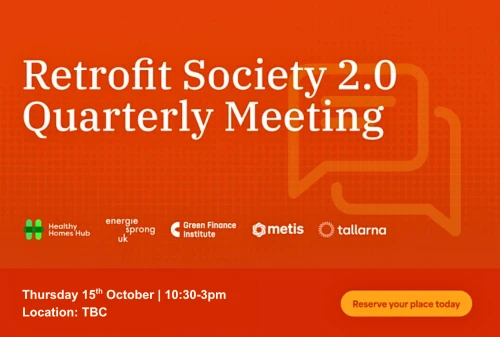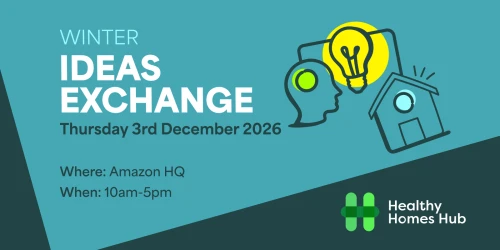RS2: Unlock Investment with the National Wealth Fund
10/10/2025
Jenny Danson
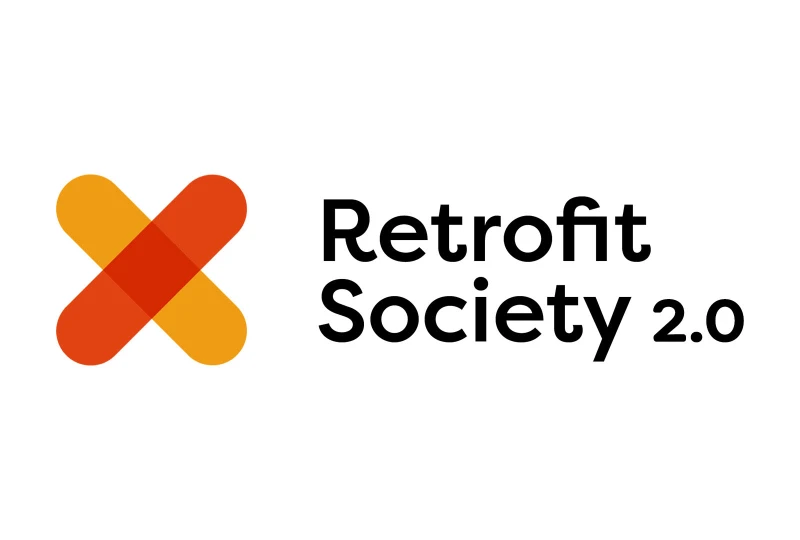
The UK can’t reach net zero without tackling homes, and social housing represents one of the most powerful levers for change. Around 2.7 million homes (11% of the UK’s total) are socially rented, yet 40% of these properties still sit below EPC band C.
To decarbonise at pace, housing providers need access to patient capital that recognises both the social and environmental value of retrofit and that’s where the National Wealth Fund (NWF) steps in.
What is the National Wealth Fund?
The NWF is a UK government-owned infrastructure investment fund designed to accelerate net zero and drive regional economic growth. It isn’t a bank and doesn’t lend directly to social landlords. Instead, it works through guarantees, taking on a share of the risk to encourage lenders to finance retrofit at scale.
In Jeremy’s words, “We’re not here to replace the market....we’re here to help it move faster.”
By backing lenders that already understand the housing sector, the NWF creates the conditions for larger, cheaper, and lower-risk investment in retrofit programmes that would otherwise stall at the credit committee stage.
Why Retrofit Guarantees Matter
Social housing providers have the ambition. Many have the data. But often, they lack access to the long-term capital needed to upgrade homes at scale without stretching their balance sheets.
The NWF’s Retrofit Guarantee model aims to de-risk those loans by reimbursing part of any loss in the event of borrower default.
Here’s how it works:
A lender provides funds to registered providers (RPs) following its normal credit process.
NWF guarantees a portion of the payment obligations from the RP to the lender.
A guarantee fee is paid by the lender to the NWF.
If the NWF fails to pay out in time, the UK Treasury (HMT) steps in under the Sovereign Infrastructure Guarantee (SIG).
In short, the guarantee reduces lender exposure, lowers borrowing costs, and gives housing providers access to capital that might otherwise be out of reach.
Building Confidence with Conditions that Matter
This isn’t just about moving money. The NWF framework builds in quality, accountability, and climate impact at every stage.
1. Financing
Funds must align with recognised environmental standards; either the Loan Market Association’s Green Loan Principles or ICMA’s Green Bond Principles. That ensures funding genuinely tackles climate change and can be verified.
2. Eligible Spend
Only approved retrofit measures can be financed, with the list evolving as technologies improve. These include:
Insulation and glazing
Solar PV, small-scale wind, and battery storage
Air, water, and ground source heat pumps
Ventilation, water efficiency, and cooling systems
Flood resilience and heatwave adaptation measures
Biodiversity improvements, such as green roofs and rain gardens
(What’s not included? Biomass, biogas, and hydrogen heating — they fall outside NWF’s decarbonisation scope.)
3. Quality Assurance
An independent third party must assure quality in most circumstances. TrustMark Licence Plus is the default option for all works not carried to PAS2035 standards. That gives lenders, landlords, and residents confidence the retrofit is done right.
4. Reporting
Impact reporting is essential, aligned with the Sustainability Reporting Standard for Social Housing (SRS). This ensures consistency in measuring carbon savings, energy efficiency improvements, and resident outcomes.
5. Standards of Works
All materials and installations must meet Building Regulations and use MCS-certified low-carbon products.
How Guarantees Bridge the Gap
As Jeremy explained, institutional investors are increasingly interested in social housing retrofit but risk allocation often stops deals from closing.
Retrofit isn’t just a financial equation; it’s operationally complex, with performance uncertainty, tenant behaviour, and maintenance obligations layered in. Lenders need to know who carries the risk when things don’t go as planned.
By absorbing part of the loss exposure, NWF guarantees help bridge that confidence gap, enabling lenders to offer larger facilities and better terms while keeping the loan off the housing provider’s balance sheet.
Scaling What Works
The NWF’s challenge is scale: with a minimum loan size of £25 million, the Fund focuses on partnerships, working through organisations with deep sector expertise, established relationships with housing associations, and local delivery networks.
That’s why Jeremy emphasises collaboration:
“We don’t want to duplicate what the sector is already good at....we want to partner with those who understand it best.”
Expect to see NWF guarantees supporting retrofit loan portfolios managed by sector specialists, aggregating smaller housing providers into investment-ready groups and unlocking the economies of scale needed for meaningful impact.
A Clear Opportunity for the Sector
The NWF’s retrofit guarantees could become a crucial missing link between ambition and delivery in social housing decarbonisation.
For landlords, it means:
Access to capital at better rates
Reduced balance sheet exposure
Confidence in quality and assurance
Clear, reportable social and environmental impact
For lenders and investors, it means:
Transparent, standardised frameworks
Government-backed guarantees
A route into a huge, underfinanced sector with measurable ESG outcomes
And for residents, the people at the heart of it all, it means warmer, healthier, and more affordable homes.
Practical Steps for Housing Providers
Understand your investment readiness. Assess your data, delivery partners, and pipeline of eligible works.
Engage early with potential lenders. Those aligned with green finance principles can benefit from NWF guarantees.
Ensure retrofit plans meet NWF quality standards. PAS2035 or TrustMark Licence Plus should be your baseline.
Develop an SRS-aligned reporting framework It’ll make you a stronger candidate for guaranteed funding.
Collaborate regionally. Pooling smaller portfolios could unlock access to the £25m+ minimum loan threshold.
In Jeremy’s words:
“Our role is to help make viable projects investable and make investable projects happen faster.”
The NWF guarantees won’t solve retrofit on their own, but they could finally turn cautious capital into confident action, unlocking the funding to bring thousands more social homes up to standard, and one step closer to a net zero future.
Become a member to read this article and more!
Social Housing Providers, Local Government, and Academics can sign up for free to access this article and more.
Already registered? Login Here
Related Content
What Are the Benefits of Being a Member of the Healthy Homes Hub?
Industry Recognition and Networking:
Connect with a thriving network of over 350 housing organisations, including decision-makers, innovators, and leaders. Build partnerships that enhance your professional growth and create lasting business opportunities.
Showcase Your Expertise:
Demonstrate your impact by participating in exclusive case studies, webinars, and events. Highlight your contributions to creating healthier, sustainable homes, reaching a broad audience across the sector.
Influence Policy and Advocacy:
Be part of shaping housing policy through direct engagement with policymakers and advocacy efforts. Stay at the forefront of discussions driving meaningful change in the housing sector.
Access to Market Insights:
Gain access to Healthy Homes Hub’s regular newsletters, expert analysis, and resources. Stay informed about trends, regulations, and innovative practices that affect housing professionals.
Specialised Events and Workshops:
Take part in events like the Immersive Study Tours, offering hands-on learning and networking opportunities. Visit groundbreaking projects and facilities to explore real-world solutions for healthier and more sustainable homes.
Exclusive Tools and Resources:
Only members can upgrade to Housing Sage, a cutting-edge AI assistant tailored to social housing professionals. Benefit from personalised insights, regulatory guidance, and innovative ideas to enhance your operations.
Collaboration Opportunities:
Contribute to Healthy Homes Hub’s mission by sharing best practices, participating in action learning programmes like the Retrofit Society, or co-developing solutions with academic and industry leaders.

